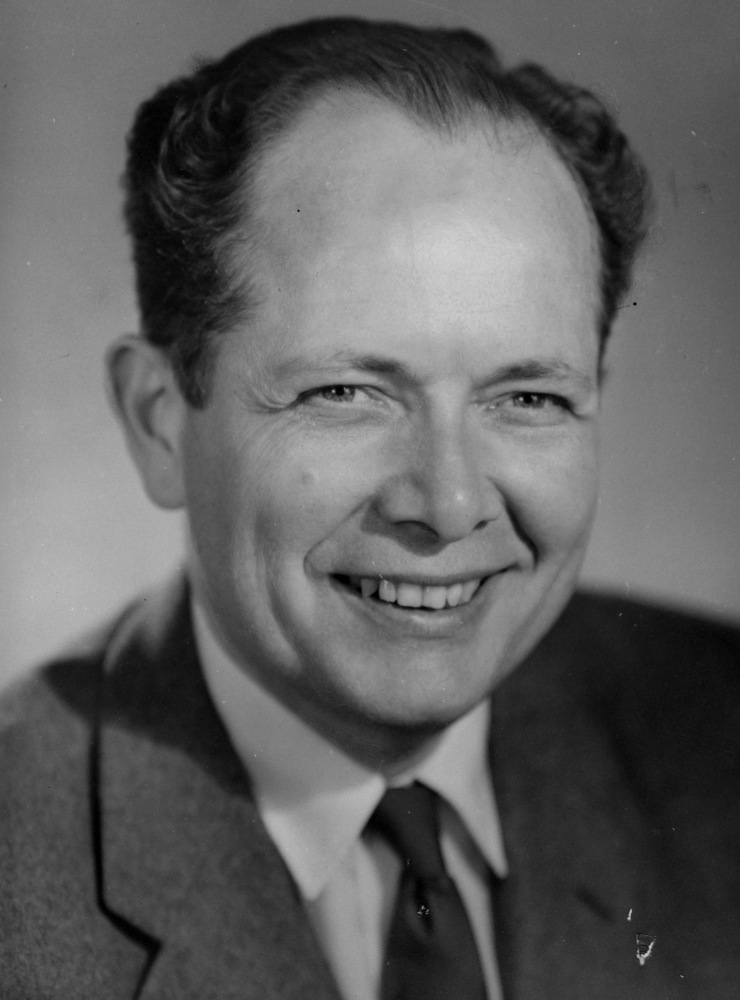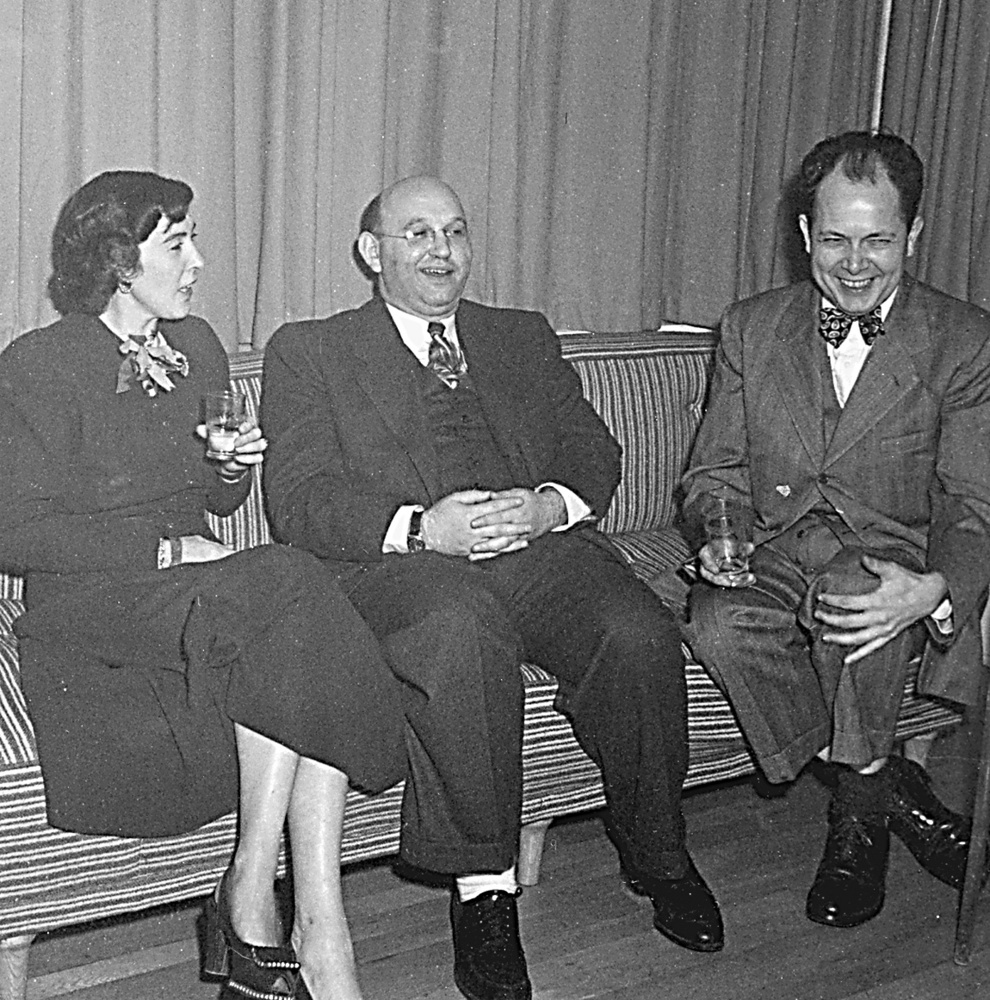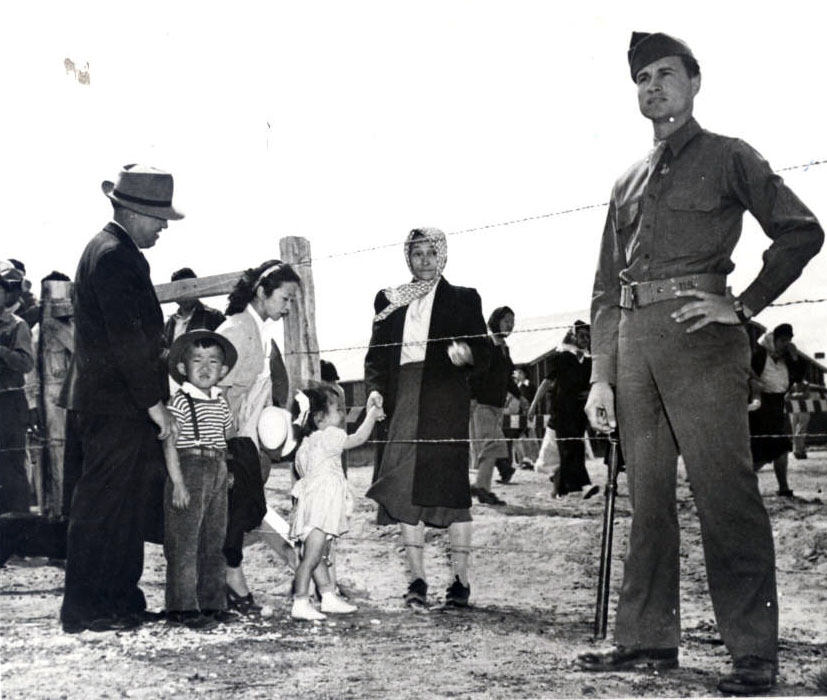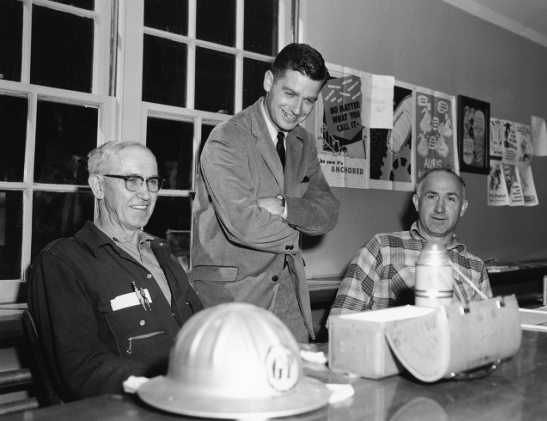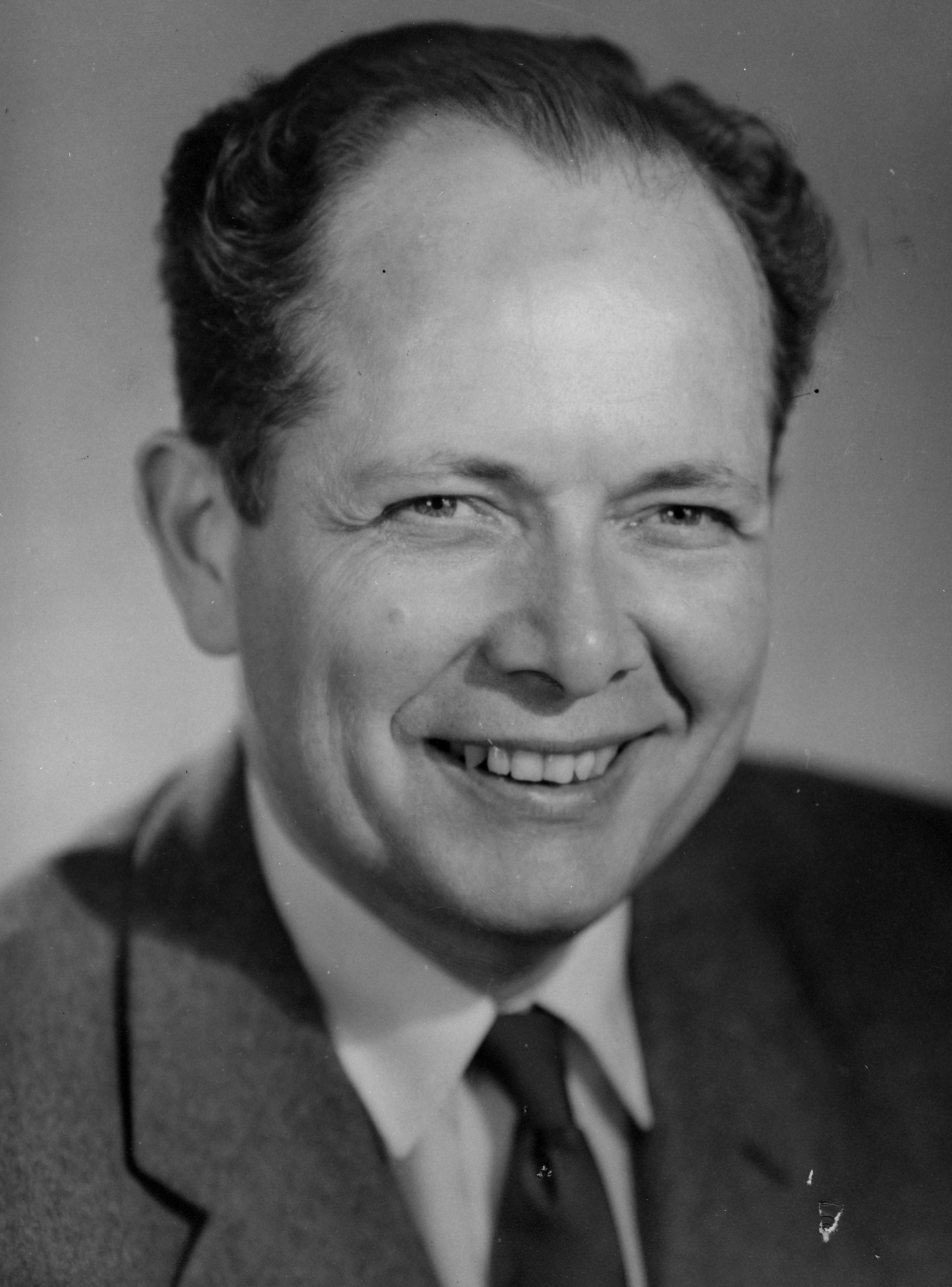Monroe Sweetland's life embraced the cultural revolution of the 1920s, the crisis of the Great Depression, the violence of World War II, and the contentious politics of the United States as it moved through wartime and cold war crises and domestic unrest. Through a remarkably constructive life, Monroe Sweetland participated for seven decades in political causes to advance the welfare of the disadvantaged and the disenfranchised.
Born in Salem, Oregon, in 1910, Sweetland moved with his family in 1916 to the small community of Constantine, Michigan, where his father practiced medicine. He graduated from high school and attended Wittenburg College in Ohio, earning a bachelor's degree in 1930. He studied law briefly at Cornell and then transferred to Syracuse University to study law. There he met Lillie Megrath, like himself, a student activist. The two left Syracuse for New York City and were married in 1933. Their union of affection and engagement in politics lasted until Lillie's death in 1985. The Sweetlands raised two daughters, Barbara and Rebecca.
Sweetland's long public career provides a tour through Oregon and American history since 1930. Beginning as a field organizer for the student League for Industrial Democracy during the Great Depression, Sweetland moved to Oregon in 1935 where he became executive secretary of the liberal Oregon Commonwealth Federation. With war clouds looming over Europe and Asia, he took a position with the Office of Production Management in Washington, D.C., in 1941.
In 1942, Sweetland joined the Congress of Industrial Organizations (CIO) War Relief Committee as director of field operations, an effort to move labor toward broader community-based issues. When the federal government ordered Japanese Americans to report to relocation centers in early 1942, Sweetland took a courageous stand opposing their internment. At war's midpoint, he joined the American Red Cross Wartime Organization, serving in combat zones in the South Pacific.
Returning to Oregon in 1946, Sweetland joined the ranks of the state's print media, publishing and editing newspapers in Molalla, Newport, and finally Milwaukie. He was elected to the Democratic Party National Committee in 1948, and began to move Oregon's moribund Democratic Party in a progressive direction. By 1954, the party had achieved an amazing turnaround with the election of Democrats Richard Neuberger to the U.S. Senate and Robert Holmes to the governor's office.
Sweetland served in the Oregon House in 1952-1954 and the Oregon Senate in 1954-1960. In the Senate, he guided legislation that transformed Portland State College into a metropolitan university. He also made two abortive attempts to win Oregon's secretary of state office, losing a close election to Republican Mark Hatfield in 1956. After a year teaching journalism in Indonesia, Sweetland took a position with the National Education Association (NEA) as political coordinator for the thirteen western states.
Sweetland's work with NEA in San Mateo, California, included passage of the Bilingual Education Act of 1968, an achievement that brought him to national prominence. The legislation reformed educational practices to bring greater equity to public schools, especially those with large minority enrollments. Sweetland worked with both educators and elected officials to achieve that objective. The landmark legislation—the first time the federal government recognized the special needs of students with limited facility in English—was reauthorized until a more conservative Congress passed the No Child Left Behind act in 2002. Barbara Sweetland Smith, Sweetland's daughter, remembers that her father considered the Bilingual Education Act "the most important thing he ever did."
When Sweetland left the NEA in 1975, he remained in San Mateo where he returned to his lifelong interest in botany. He spent the last fully active years of his working life as an entrepreneur with Western Wilderness Products, a company he formed to process and supply wild flora to wholesalers who distributed the products to upscale shops in Chicago and New York City. He organized and managed the company while losing sight in one eye to cancer and suffering macular degeneration in the other.
Although he spent only thirty-seven of his ninety-six years in Oregon, Barbara Sweetland points out that "he always considered himself an Oregonian, by birth and by inclination." When his work was finished in New York City, Washington, D.C., or the Pacific during World War II, Sweetland always returned to Oregon. In 1994, legally blind and without his lifelong companion, Lillie, Sweetland returned again to Milwaukie to be near his youngest daughter and granddaughter.
At the time of his death in 2006, Monroe Sweetland's progressive legacy to Oregon and the nation included a broadened voter franchise, strengthened civil rights for Japanese Americans, and a spirit of engagement in politics.
-
![Monroe F. Sweetland.]()
Sweetland, Monroe, bb005795.
Monroe F. Sweetland. Oreg. Hist. Soc. Research Lib., bb005795
-
![]()
Monroe Sweetland, c.1942.
Courtesy Susan Baroz
-
![]()
Monroe Sweetland posing in Willamette University sweater, c. 1913.
Courtesy Susan Baroz
-
![Monroe (r) with sister Ada Louise Sweetland, 1910s.]()
Sweetland, Monroe and Ada, 1910s.
Monroe (r) with sister Ada Louise Sweetland, 1910s. Courtesy Susan Baroz
-
![]()
Monroe Sweetland, c.1913.
Courtesy Susan Baroz
-
![]()
Monroe Sweetland and his brother, George.
Courtesy Susan Baroz
-
![Monroe (r) and Lillie (l) Sweetland with federal district judge Gus J. Solomon.]()
Solomon, Gus, and Sweetlands.
Monroe (r) and Lillie (l) Sweetland with federal district judge Gus J. Solomon. Oreg. Hist. Soc. Research Lib.
Related Entries
-
![Japanese American Wartime Incarceration in Oregon]()
Japanese American Wartime Incarceration in Oregon
Masuo Yasui, together with many members of Hood River’s Japanese commun…
-
![Mark O. Hatfield (1922-2011)]()
Mark O. Hatfield (1922-2011)
As an Oregon legislator, secretary of state, governor, and United State…
-
![Oregon Commonwealth Federation]()
Oregon Commonwealth Federation
Following the inaugural meeting of the Oregon Commonwealth Federation (…
-
![Richard Neuberger (1912-1960)]()
Richard Neuberger (1912-1960)
When he was elected to the United States Senate in 1954, Richard Neuber…
Map This on the Oregon History WayFinder
The Oregon History Wayfinder is an interactive map that identifies significant places, people, and events in Oregon history.
Further Reading
Burton, Robert. Democrats of Oregon: The Pattern of Minority Politics, 1950-1956. Eugene: University of Oregon, 1970.
MacColl, E. Kimbark. The Growth of a City: Power and Politics in Portland, Oregon, 1915 to 1950. Athens, Ga.: Georgian Press, 1979.
Robbins, William G. A Man for All Seasons: Monroe Sweetland and the Liberal Paradox. Corvallis: Oregon State University Press, 2015.

